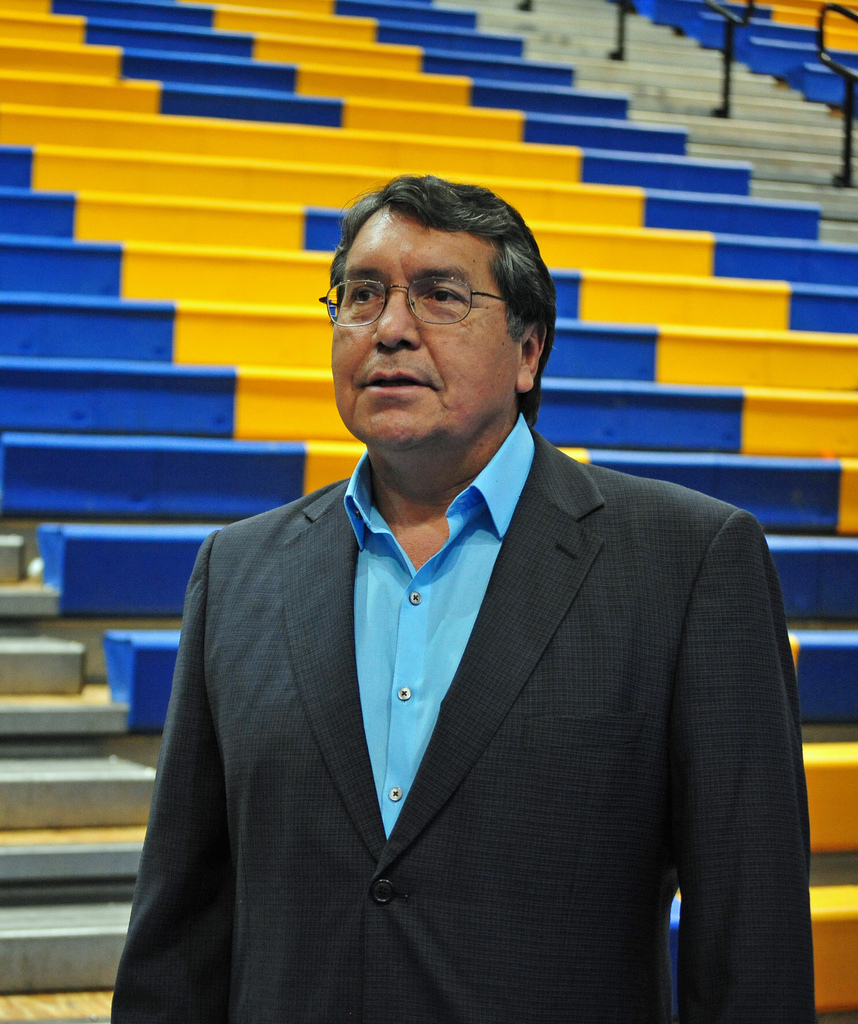Indianz.Com > News > Rodney Bordeaux: Strengthening the nation-to-nation relationship
Thanks to President Biden for Respecting Tribal Sovereignty and Nation-to-Nation Relations
Thursday, March 4, 2021
In the beginning, the Creator gave the breath of life to the first man and the first woman and gave our Lakota, Nakota, and Dakota People a sacred duty to care for Grandmother Earth.
From the dawn of the first day, our grandfathers and grandmothers came forth in the light of day. They lit the Council fire in the heart of the village. Together with our relatives, we formed the Seven Council Fires. We are the grandchildren of the Creator. With the Creator’s blessing, our Nation’s People are the source of our sovereignty.
Indian nations were sovereign independent nations for many thousands of years before the formation of the United States. In the first American treaty, the 1787 Treaty with the Delaware Nation, the United States sought “perpetual peace and friendship” and “free passage” across the Delaware territory to reach the British forts during while “the United States are engaged in a just and necessary war, in defence and support of life, liberty and independence, against the King of England and his adherents.”

Rodney M. Bordeaux was born and raised in Rosebud, South Dakota, and enjoyed a childhood on the beautiful Rosebud Reservation learning the importance of community involvement and public service. Bordeaux has dedicated much of his professional life to serving the Rosebud Sioux Tribe including twenty years in education, twelve years on the tribal council, and is serving his fourth term as President.
Related Stories
Department of Housing and Urban Development hosts tribal consultation (February 25, 2021)‘A new and better chapter’: President Joe Biden at National Congress of American Indians #NCAIECWS2021 (February 23, 2021)
Biden administration announces nation-to-nation tribal consultations (February 11, 2021)
Cronkite News: Biden signs tribal consultation and nation-to-nation order (February 10, 2021)
Native women land key leadership and policy roles in Biden administration (February 5, 2021)
President Joe Biden: Tribal consultation and strengthening nation-to-nation relationships (January 26, 2021)
President Biden issues tribal consultation and nation-to-nation directive (January 26, 2021)
Search
Filed Under
Tags
More Headlines
Native America Calling: Can the right approach close the Native immunization gap?
Cronkite News: Long COVID cases remain high in Arizona
Native America Calling: Eyes in the sky for development, public safety, and recreation
Native America Calling: Three new films offer diverse views of Native life
NAFOA: 5 Things You Need to Know this Week
Chuck Hoskin: Cherokee Nation works toward cure for arthritis
Native America Calling: Protecting young people from the down sides of social media
Cronkite News: Fake ‘shaman’ among candidates failing to make Congressional ballot
Native America Calling: New Native voices in poetry
Cronkite News: Tribes air concerns about border at hearing in nation’s capital
Native America Calling: Indiginerds descend on Oklahoma City
Native America Calling: Political leaders target tribes with unfounded claims
Cronkite News: First Native woman in space shares unique journey
Native America Calling: Tackling a troubling trend for Native women in prison
Chuck Hoskin: Cherokee Nation safeguards our Native language
More Headlines
Cronkite News: Long COVID cases remain high in Arizona
Native America Calling: Eyes in the sky for development, public safety, and recreation
Native America Calling: Three new films offer diverse views of Native life
NAFOA: 5 Things You Need to Know this Week
Chuck Hoskin: Cherokee Nation works toward cure for arthritis
Native America Calling: Protecting young people from the down sides of social media
Cronkite News: Fake ‘shaman’ among candidates failing to make Congressional ballot
Native America Calling: New Native voices in poetry
Cronkite News: Tribes air concerns about border at hearing in nation’s capital
Native America Calling: Indiginerds descend on Oklahoma City
Native America Calling: Political leaders target tribes with unfounded claims
Cronkite News: First Native woman in space shares unique journey
Native America Calling: Tackling a troubling trend for Native women in prison
Chuck Hoskin: Cherokee Nation safeguards our Native language
More Headlines